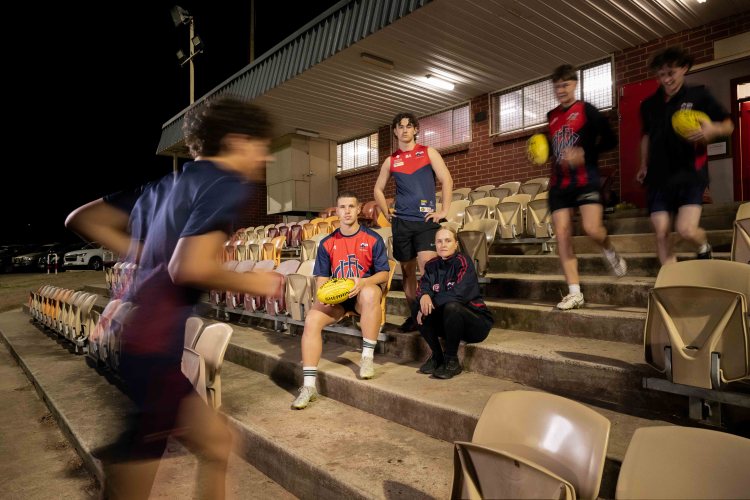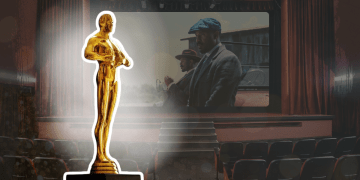Premierships are great – but this SA football club’s biggest win is the culture shift happening off the field. Here’s how they’re turning sport into support.
Growing up in South Australia, there’s a fair chance footy shapes your weekends. And at a club like Willaston – aka the Donnybrooks – it’s more than just a game. It’s family. It’s community. And, increasingly, it’s a life-saving support system.
Most of the players at Willaston Football Club are men and women under 40 – the age group most at risk of suicide in Australia. In fact, suicide is the leading cause of death for South Australians aged 15 to 44.
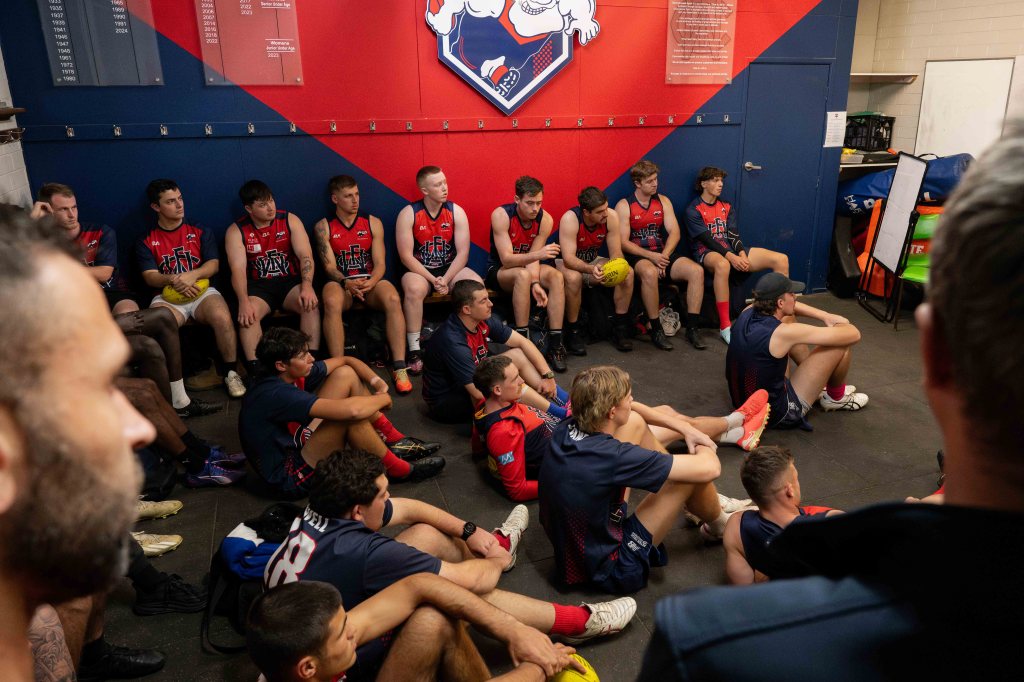
Tackling the issue head on
This is one of the reasons why the club is focusing so much on players’ wellbeing off the field – and how this is helping them kick goals while playing.
In 2024, the Donnybrooks claimed their first A-grade premiership in 25 years, edging out Angaston in a nail-biter of a grand final in the Barossa Light and Gawler Football Association league.
At the centre of it all is wellbeing coordinator Karen McColl. “We’ve seen players and club volunteers open up who never would have in the past,” she says. “That’s a massive cultural shift.”
“You don’t have to have all the answers to support someone – it’s about being there and letting them know they’re not alone.”
What does mental health look like at a footy club?
It looks like a six-person trained wellbeing team, with contact details on the change room wall – and the toilet doors, because that’s where people actually stop to read.
It looks like a resilience workshop, funded by the Rural Health Innovation Fund, supported by Country SA Primary Health Network, packed with footy players, netballers, cricketers and community members, all listening to two men with lived experience of trauma – Ben Pettingill, who went blind overnight at 16, and Mike Rolls, who lost both legs below the knee to meningococcal at 18.
Their message? You’re stronger than you think. And asking for help isn’t weakness. It’s wisdom.
It looks like a job-ready program for 12 to 14-year-olds, also funded through a Rural Health Innovation Fund grant, that gives youth real work experience in the club’s canteen and scoreboard box – and helps them build confidence, pride, and a resume.
And it looks like conversations – real ones, not just locker-room banter – about anxiety, burnout, trauma, and what it means to be there for your mates when life gets tough.
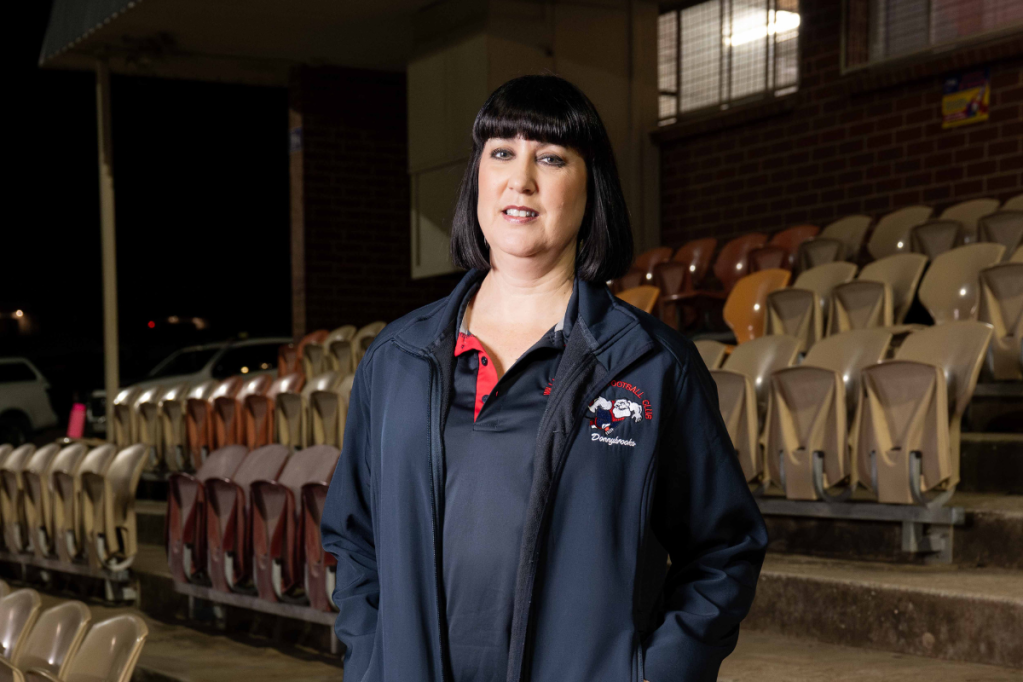
A strong mind makes a stronger team
That’s how Karen McColl sees it. “We want people to focus on their mental health because we know that brings about good physical ability and total wellbeing,” she says. “You can’t be good on the field if you’re not good off the field.”
She launched Willaston’s mental health and wellbeing program in 2022, and it’s grown into something that now supports not just players, but coaches, supporters, and the wider Willaston community.
Karen has worked in Suicide Prevention for many years in various roles and the AFL Coaches Association named her the inaugural national Tackle Your Feelings Community Champion in 2023 – so she knows what she’s talking about.
“It’s not just about fixing problems when they blow up,” she says. “It’s about building a culture where support is always available – and visible.”
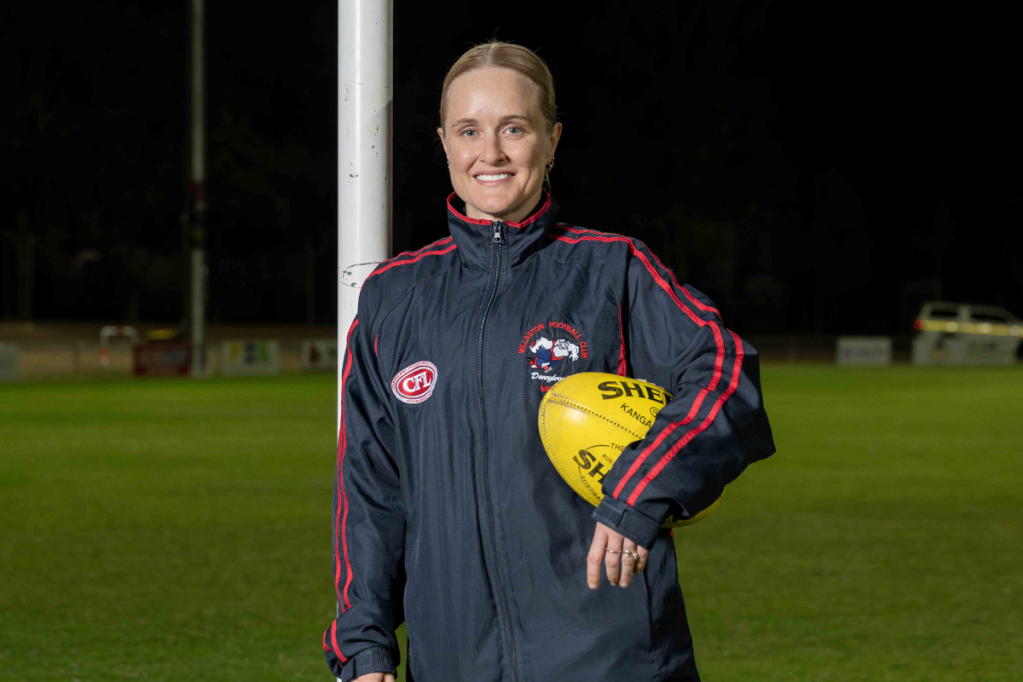
‘You have to check on the checker-uppers’
That’s a phrase Megan Boers-Veen uses often – and she means it. As Willaston’s assistant coach for the A-grade men’s team, she’s often the one checking in on others. But she knows those doing the checking need backup too.
“Burnout is real,” she says. “Especially when you’re supporting people through mental health stuff. We’ve got to look after the supporters too – not just the players.”
Megan knows the stakes firsthand – she lost someone close to suicide just before the 2024 season.
She speaks candidly about grief, coaching through it, and the way the players rallied around her.
“The boys were incredible – they checked in constantly. That’s the culture we’re building. Not just tough players, but kind people.”
She’s also no stranger to breaking barriers. Megan is the first woman to coach an A-grade men’s team in the BLGFA, and she’s a former SANFLW player, multiple premiership-winning coach, and 2022 SANFL Female Community Coach of the Year.
“I make them do fun stuff at training – some of the boys think I’m a dag,” she says. “But if they’ve had a crap day, a bit of mucking around helps. Footy should be good for your head, not just your body.”
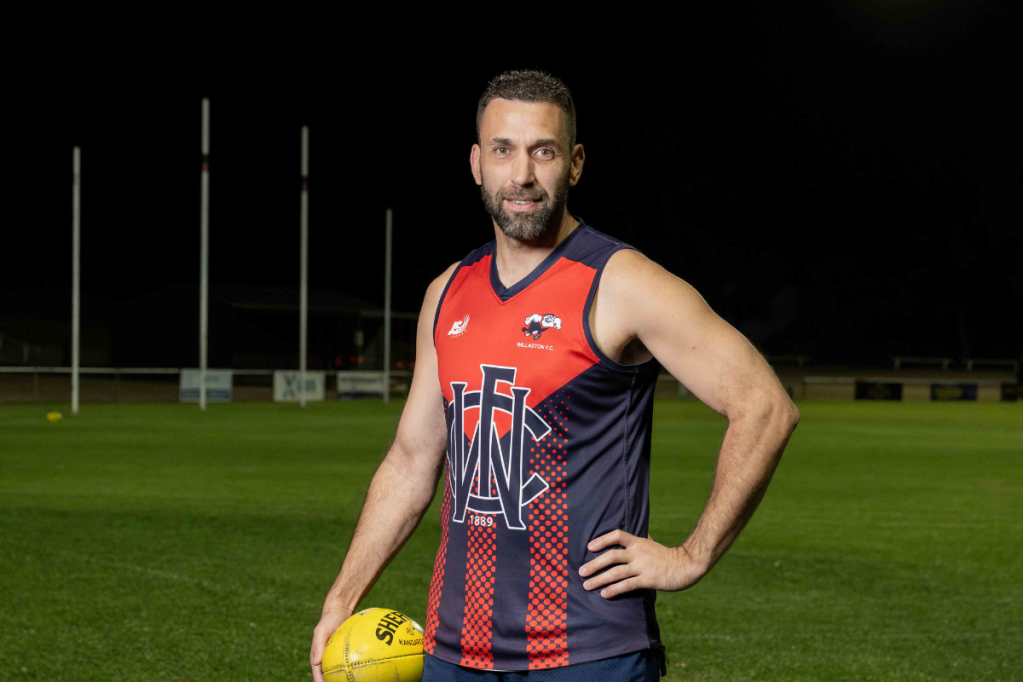
‘Culture doesn’t change overnight, but it’s shifting.’
That’s the view from Shaun Childs, who’s played over 300 games for teams including Sturt in the SANFL and Willaston.
He now serves as one of the club’s go-to mental health contacts – and as a senior player, he’s someone the younger blokes look up to.
A proud Kokatha and Wirangu man, Shaun works as a Cultural Engagement Manager with Reconciliation SA and brings deep insight into the added complexities Indigenous players face.
“There’s more trauma, more racism, more history that weighs on you,” he says. “Mental health isn’t separate from that. It’s all connected – culture, connection to Country, family.
“That’s why footy clubs can be such important spaces. They can either help or harm. Willaston’s doing the work to be a place that helps.”
While no one has reached out to him directly for mental health support yet, Shaun says just being there – visible, approachable – is powerful. “I open up first. I show that it’s safe. That’s how trust builds.”
And he’s seen the cultural shift firsthand. “When I first started, no one talked about mental health. You’d get laughed at. Now, guys are learning that it’s okay. That it actually makes you stronger.”
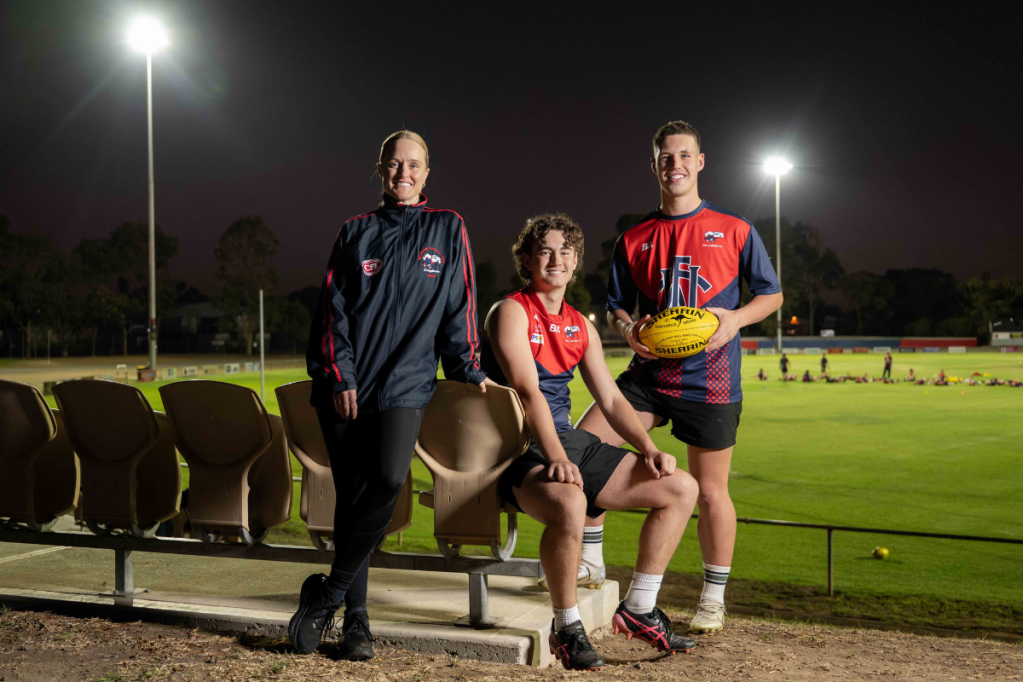
Mental health in SA: The stats that matter
Let’s not sugar-coat it – these are the facts (sourced from the Australian Bureau of Statistics):
- Suicide is the number one cause of death for South Australians aged 15-44 year.
- Approximately 1 in 6 adults report experiencing thoughts of suicide in the past year.
While suicide can affect anyone, some groups are impacted more than others:
- Men are three more times more likely to die by suicide than women,
- Aboriginal people in South Australia are dying by suicide at almost twice that of non-Aboriginal people, and
- People living regionally have a higher risk than those living in metro areas.
Behind each of these stats are the real figures – each suicide representing a unique life lost and the family, friends and communities grieving that loss.
With the right supports, death by suicide is preventable.
This is why the South Australian government, through Preventive Health SA, is investing in community-driven, early-intervention approaches like Willaston’s through its Suicide Prevention Community Grant Program.
The message is clear: prevention works. Especially when it’s local, trusted, and woven into everyday life – like weekend sport.
What sport teaches – and why it matters
Megan and Shaun agree that sport teaches life skills you don’t get in school.
“It teaches resilience, communication, responsibility, teamwork – and how to deal with failure,” says Shaun. “You learn to keep going even when things get tough.”
For many young people, footy is their first real experience of leadership, identity and community.
“It teaches you how to look out for each other,” Megan says. “And if we’re doing that well off the field, it shows up on the field too.”
What the players say

Hudson, 21:
“In football, there’s this idea of toughness and physicality, but I think we’ve learnt mental strength is just as important.”
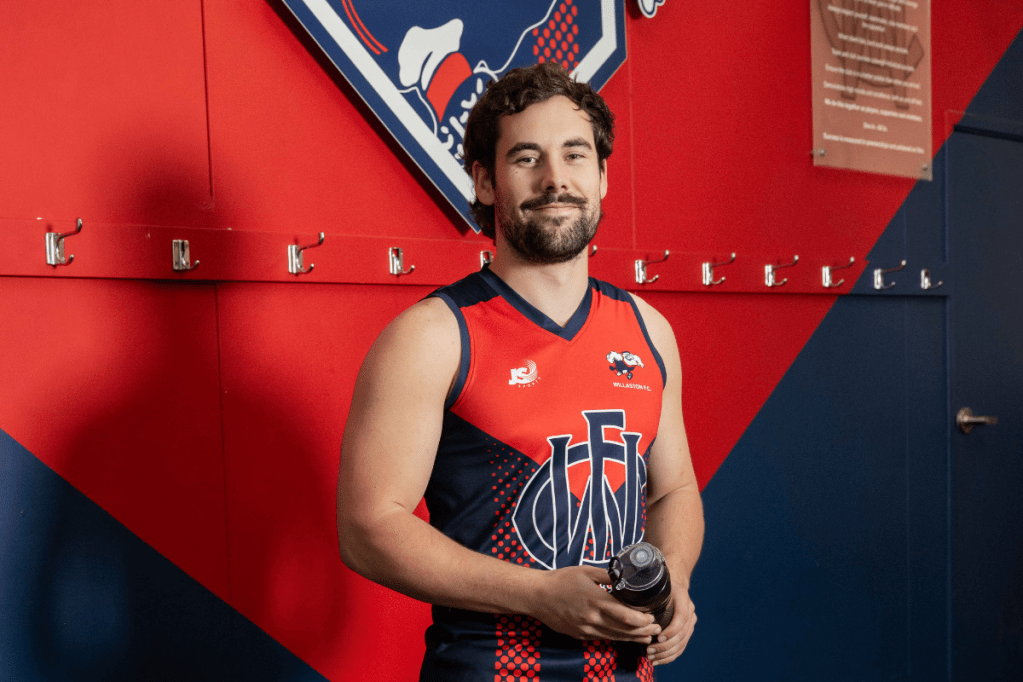
Harrison, 26:
“It’s reassuring to have support for anything we might be facing or anything we’re afraid to talk about with people close to us.”
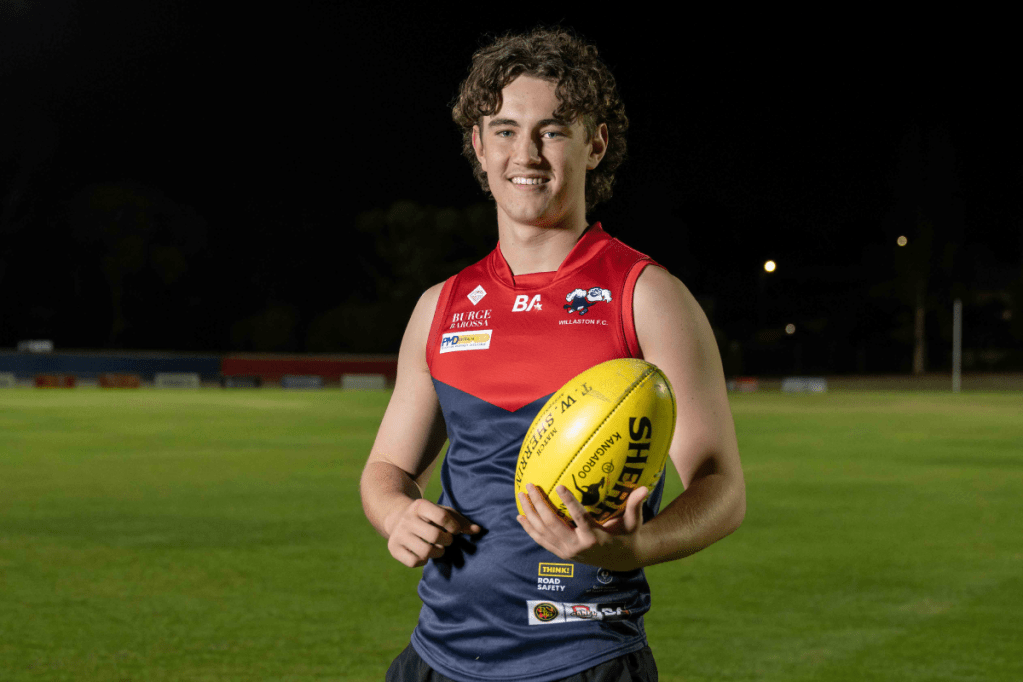
Asher, 19:
“It’s helped our group bond off the field, which helped us go all the way last year in both grades.”
Want to make change? Just start.
Karen’s advice to other clubs is simple: start small. “One workshop. One poster in the toilet. One conversation. That’s all it takes to get started.”
Shaun agrees. “Don’t wait until you’ve got a full program. Just pick your people. Trust them. Let them lead.”
And Megan? “There’s no downside to creating a club that’s safe and kind. You don’t lose anything. You just gain people who know they’re valued.”
Want to know more about starting a wellbeing program at your club – or keep up to date on other community initiatives or funding opportunities to promote mental health and wellbeing and prevent suicide across the state? Head to preventivehealth.sa.gov.au and tackleyourfeelings.org.au.
Willaston Football Club is also grateful and acknowledges funding towards these programs in season 2025 from Rural Health Innovation Fund supported by Country SA PHN.
If you or anyone you know is struggling, make sure to reach out to one of the mental health services available 24/7:
LifeLine: 13 11 14
Beyond Blue: 1300 22 46 36


